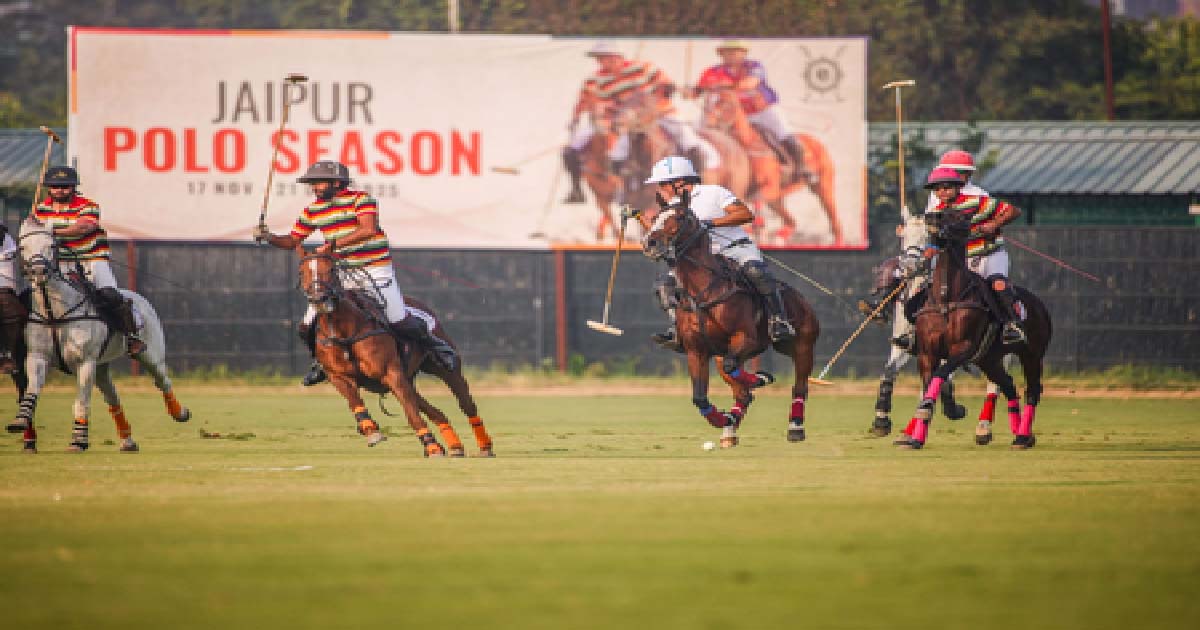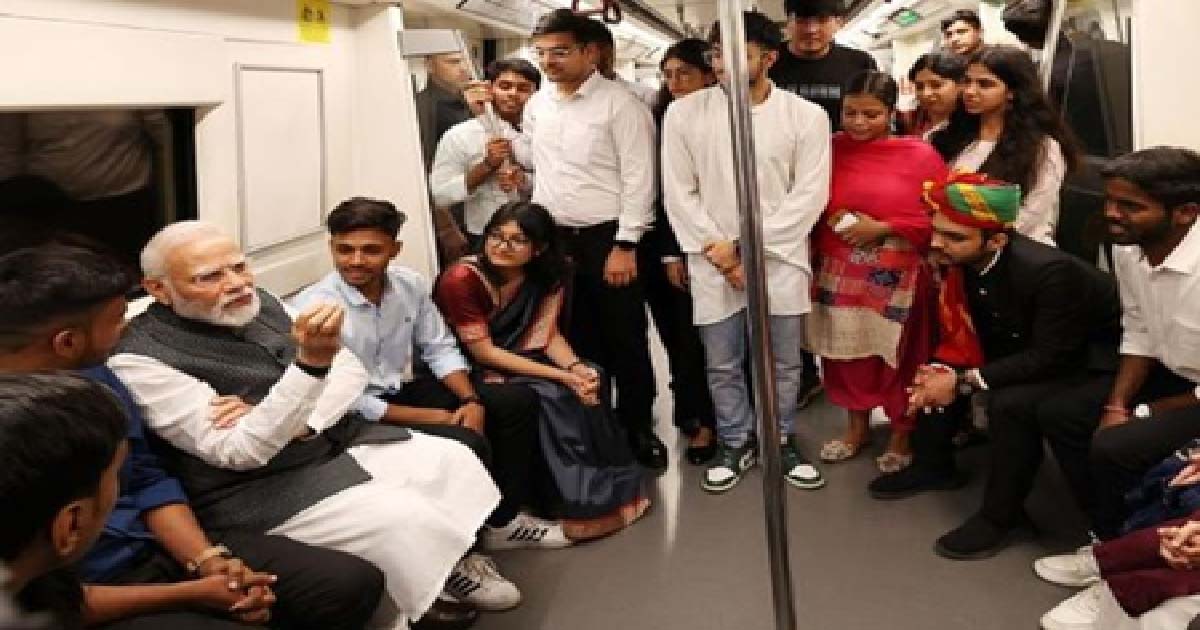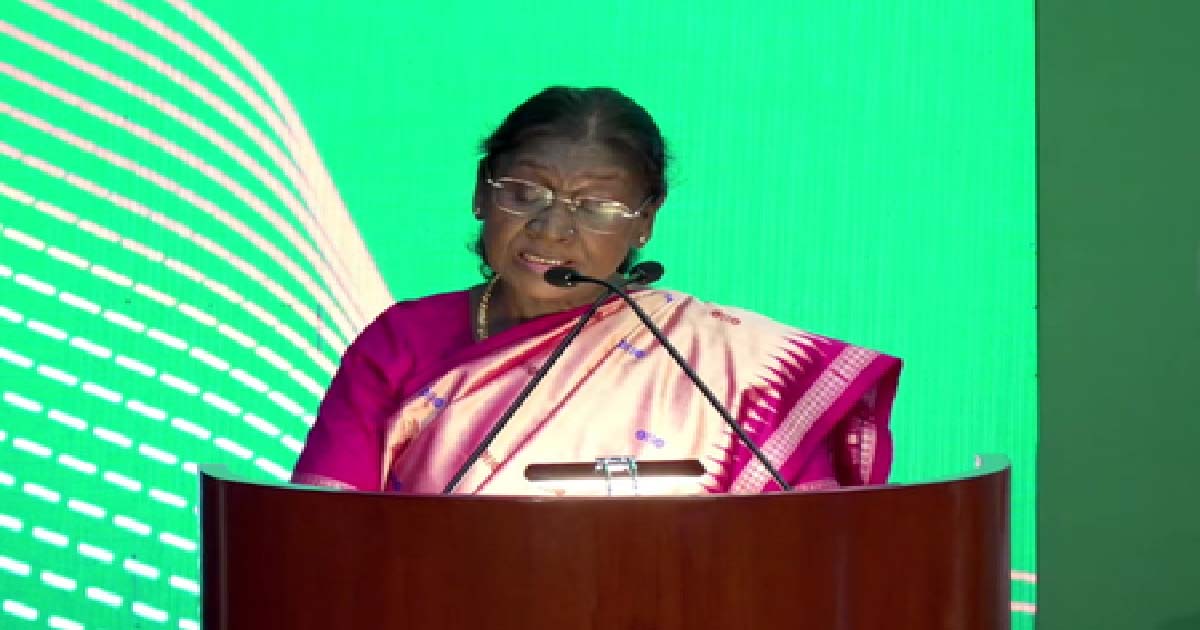National News
Krishna became ‘Dwarkadhish’ only after becoming Gujarati: Rupala
Union Minister of Fisheries, Animal Husbandry and Dairying Parshottam Rupala has said that Lord Krishna became popular as “Dwarkadhish” only after becoming a part of Gujarat.
He was speaking at a programme by the Vishwa Gujarati Samaj (VGS) to felicitate prominent Gujarati community personalities on Sunday.
“The Gujarati community has always been special with a rich tradition and past right from the times of mythology. Krishna might be known as Krishna or Kanhaiya but he received the title of Dwarkadhish only after he came here, became a part of Gujarat and became a Gujarati,” said Rupala.
Rupala felicitated historian Dr Rizwan Qadri with the ‘Sardar Vallabhbhai Patel Vishwa Pratibha Award’ and Rs 2.50 lakh in cash for his research work on the ironman of India Sardar Vallabhbhai Patel. “The saints of Swaminarayan sect in Maninagar (Ahmedabad) inspiring Dr Qadri to do research on the Sardar and thereafter Dr Qadri studying and researching is a very historic and proud Gujarati moment. Exploring Sardar Patel’s magnanimous personality is like exploring the ocean,” added Rupala.
Besides Dr Qadri, the VGS also felicitated the Surat-based diamond firm owner and Padma Shri awardee Mathurbhai Savani with the ‘Shri Kanjibhai Desai Gujarat Pratibha Award’ along with prize money of Rs 1 lakh.
Besides, another awardee was the Delhi Gujarat Samaj, the Delhi chapter of VGS, which was recognised as an awardee for ‘Sreshth Gujarati Samaj Award’ and was awarded Rs 1 lakh for it’s contribution in 125 years.
“Having a history of 125 years in itself is a thing of honour for the Delhi Gujarati Samaj. I am glad that this institution has been maintaining the decorum of the Gujarati culture in the national capital for all these years,” he said.
Other awardees were cardiologist Dr R.K. Patel, who is also the honorary director at UN Mehta Institute of Cardiology. Patel was awarded for his special contribution in the Covid-19 situation duties.
Speaking about Dr R.K. Patel’s contribution in Gujarat, Rupala said: “If there is any hospital which can compete against corporate hospitals, then that is the Ahmedabad Civil hospital. It is only due to Dr Patel and a few others’ efforts that the hospital is now considered to be having highest of healthcare standards.”
Talking about the Gujarati culture and heritage, Rupala said: “The ancient heritage, right since the time of Narsinh Mehta continued to bring glory to the state and was sustained in the prevailing times by Dayanand Saraswati Maharaj,” he said.
On the Swaminarayan sect, he said: “If any institution which can be named to bring glory to the temple structure in the world, then that is the present Swaminarayan sect and the efforts of Pramukh Swamiji Maharaj.”
The minister also spoke about political leadership from Gujarat. “When you talk about the freedom struggle, then also it were the Gujaratis at the forefront. The duo of Gandhi and Sardar led the country towards freedom. Thereafter, Gujarat was led by Dr Jivraj Mehta in this journey of growth and today that journey has led us to a point where the state is now known as the growth engine of India,” Rupala said.
“On the business front, Gujaratis are known to be the leaders. The Surat diamond business is dominating in the world. Eighty per cent of global diamond business is controlled by Surat. Morbi is leading the world in clock manufacturing and ceramic industry. The ceramic of Morbi is now competing against China,” Rupala said.
Former president of VGS, Gujarat High Court advocate Krishnakant Vakhariya, was also felicitated for his contribution in leading VGS for nearly three decades.
After receiving the award and the prize money, Dr Qadri announced that the entire prize money of Rs 2.5 lakh will be utilised in further research work on Sardar. This was supported by Savani through his prize money of Rs one lakh.
“It is a thing of pride for me that I am honored for a work which is associated with the Sardar Saheb. But it is also a pity that our rich heritage and culture is being wasted and found in flea markets. An unknown painter called Chagan Jadhav painted the Dandi March, which I found in the Sunday flea market in Ahmedabad. Swami Maharajji inspired me to document this and the ‘Unseen Drawings of Dandi March’ was published. The prime minister Narendra Modi saw this publication which inspired the Aazadi ka Amrit mahotsav,” said Dr Qadri.
The VGS has been felicitating prominent Gujarati personalities every year since the past 17 years, except for last year owing to the Covid-19 pandemic, according to president C.K. Patel.
“As an organisation we will be now moving towards reaching out to rural population and farmers in the coming days so as to carry out more work that needs to be done. We want to make a big movement,” said C.K. Patel.
National News
Jaipur Polo Team enters Kota Cup final

Jaipur, Nov 27: The second encounter of the Kota Cup, yet again, ended in a stylish victory for the Jaipur Polo team as they came out victorious by a scoreline of 10-6 against Chunda Polo to qualify for the final of the tournament.
The game saw impressive contributions from players across both teams, but Jaipur’s consistent scoring helped them secure the win. For the home team, it was again the attacking duo of Maharaja Sawai Padmanabh Singh of Jaipur and Lance Watson who bagged all the goals.
Padmanabh Singh did the bulk of the scoring with six goals to his name and Watson scored the rest to complete a stellar performance.
The match began with both teams showing their intensity, and it was none other than Padmanabh Singh of Jaipur who scored the opening goal to secure an early lead. Jaipur continued the momentum as they added two more goals quickly led by Lance Watson to end the chukker at 3-1.
The second chukker saw Chunda Polo trying to make a comeback as they scored two but the team Jaipur was relentless as they kept piling up the score with two more goals from Padmanabh Singh to end the second chukker with a lead of 5-3.
The third chukker was all about Jaipur as Padmanabh Singh added three more goals to his name and Lance Watson added one. Chunda Polo could get back one goal but it was too late already as the score stood at 9-4 in Jaipur’s favour at the end of the chukker.
The last chukker was more about being prudent rather than going for attacks. While Chunda Polo scored two goals, Jaipur scored the final and the 10th goal via Lance Watson to cap off a commanding win.
The final of the tournament will now be played on November 30 at the Rajasthan Polo Club, wherein Jaipur still awaits the challenger.
Business
Young innovators worldwide can find inspiration from confidence of India’s Gen Z: PM Modi

New Delhi, Nov 27: Prime Minister Narendra Modi on Thursday lauded India’s Generation Z for their confidence and capacity building.
Speaking via video conferencing at the inauguration of the Infinity Campus of Indian space startup Skyroot and unveiling its first orbital rocket, Vikram-I, PM Modi praised the country’s Gen Z for their positive mindset and creativity.
“Our youth, our Gen Z, are developing solutions to challenges in every sector. Young innovators around the world can find inspiration from the confidence of India’s Gen Z,” PM Modi said.
“The capacity building, positive mindset, and creativity of India’s Gen Z can set a global benchmark for Gen Z across the world,” he said.
Emphasising that India’s youth always place national interest above all and make the best use of every opportunity, PM Modi remarked that when the government opened the space sector, the country’s youth, especially the Gen-Z generation, came forward to take full advantage of it.
He highlighted that today more than 300 space startups are giving new hope to India’s space future, and noted that most of these startups began with small teams — sometimes two people, sometimes five, sometimes in a small rented room — with limited resources but with determination to reach new heights.
“This spirit has given birth to the private space revolution in India,” said the Prime Minister. He noted that Gen-Z engineers, designers, coders, and scientists are creating new technologies, whether in propulsion systems, composite materials, rocket stages, or satellite platforms.
PM Modi stressed that India’s youth are working in areas that were unimaginable just a few years ago.
He remarked that India’s private space talent is establishing a distinct identity across the world and added that today, for global investors, India’s space sector is becoming an attractive destination.
The Prime Minister remarked that the changes being witnessed in the space sector are part of the broader startup revolution taking place in India.
“Over the past decade, a new wave of startups has emerged across diverse sectors such as fintech, agri tech, health tech, climate tech, edu tech, and defense tech, with India’s youth, particularly the Gen-Z generation, providing innovative solutions in every field,” PM Modi said.
PM Modi emphasised that “India has now become the world’s third-largest startup ecosystem”.
There was a time when startups were confined to a few big cities, but today they are emerging from small towns and villages as well, the Prime Minister said, underlining that the country now has more than 1.5 lakh registered startups, with many of them having achieved unicorn status.
“India is no longer confined to apps and services but is now advancing rapidly towards deep-tech, manufacturing, and hardware innovation,” said the Prime Minister, thanking Gen-Z.
National News
India seeks peace but stands ready to defend its borders, says President Murmu

New Delhi, Nov 27: President Droupadi Murmu on Thursday said India’s diplomacy, economic strength and armed forces collectively present a nation committed to peace while remaining fully prepared to defend its borders and citizens.
Praising the armed forces for their “professionalism and patriotism”, she said the recent success of Operation Sindoor represents a pivotal moment in India’s counter-terrorism and deterrence strategy.
Addressing the Chanakya Defence Dialogue 2025 at the Manekshaw Centre in New Delhi, the President said, “The Indian armed forces have exemplified professionalism and patriotism in guarding the sovereignty of India. During every security challenge, be it conventional, counter-insurgency or humanitarian, our forces have displayed remarkable adaptivity.”
“The recent success of ‘Operation Sindoor’ marks a defining moment in our counter-terrorism and deterrence strategy. The world took note of not only India’s military capability but of its moral clarity to act firmly yet responsibly in the pursuit of peace,” she added.
The President said that she was pleased that, beyond their operational role, the defence forces continue to serve as a “major pillar of national development”, contributing significantly to infrastructure, education and other initiatives in border regions.
Emphasising fast-changing geopolitical dynamics, President Murmu said, “The international system is being rewritten by contesting power centres, technological disruptions and shifting alliances. New domains of competition, cyberspace information and cognitive warfare are blurring the lines between peace and conflicts.”
Highlighting India’s approach to global affairs, she said, “Guided by our civilised ethos of ‘Vasudhaiva Kutumbakam’, we have shown that strategic autonomy can co-exist with global responsibility. Our diplomacy, economy and armed forces together project an India that seeks peace but is prepared to protect its border and its citizens with strength and conviction.”
The President expressed confidence that the dialogue’s outcome would offer valuable insights for policymakers as they shape the nation’s future course. She concluded by saying she was certain the armed forces would continue to strive for excellence and advance with determination towards achieving the goal of ‘Viksit Bharat@2047’.
-

 Crime3 years ago
Crime3 years agoClass 10 student jumps to death in Jaipur
-

 Maharashtra1 year ago
Maharashtra1 year agoMumbai Local Train Update: Central Railway’s New Timetable Comes Into Effect; Check Full List Of Revised Timings & Stations
-

 Maharashtra1 year ago
Maharashtra1 year agoMumbai To Go Toll-Free Tonight! Maharashtra Govt Announces Complete Toll Waiver For Light Motor Vehicles At All 5 Entry Points Of City
-

 Maharashtra1 year ago
Maharashtra1 year agoFalse photo of Imtiaz Jaleel’s rally, exposing the fooling conspiracy
-

 National News1 year ago
National News1 year agoMinistry of Railways rolls out Special Drive 4.0 with focus on digitisation, cleanliness, inclusiveness and grievance redressal
-

 Maharashtra1 year ago
Maharashtra1 year agoMaharashtra Elections 2024: Mumbai Metro & BEST Services Extended Till Midnight On Voting Day
-

 National News1 year ago
National News1 year agoJ&K: 4 Jawans Killed, 28 Injured After Bus Carrying BSF Personnel For Poll Duty Falls Into Gorge In Budgam; Terrifying Visuals Surface
-

 Crime1 year ago
Crime1 year agoBaba Siddique Murder: Mumbai Police Unable To Get Lawrence Bishnoi Custody Due To Home Ministry Order, Says Report












